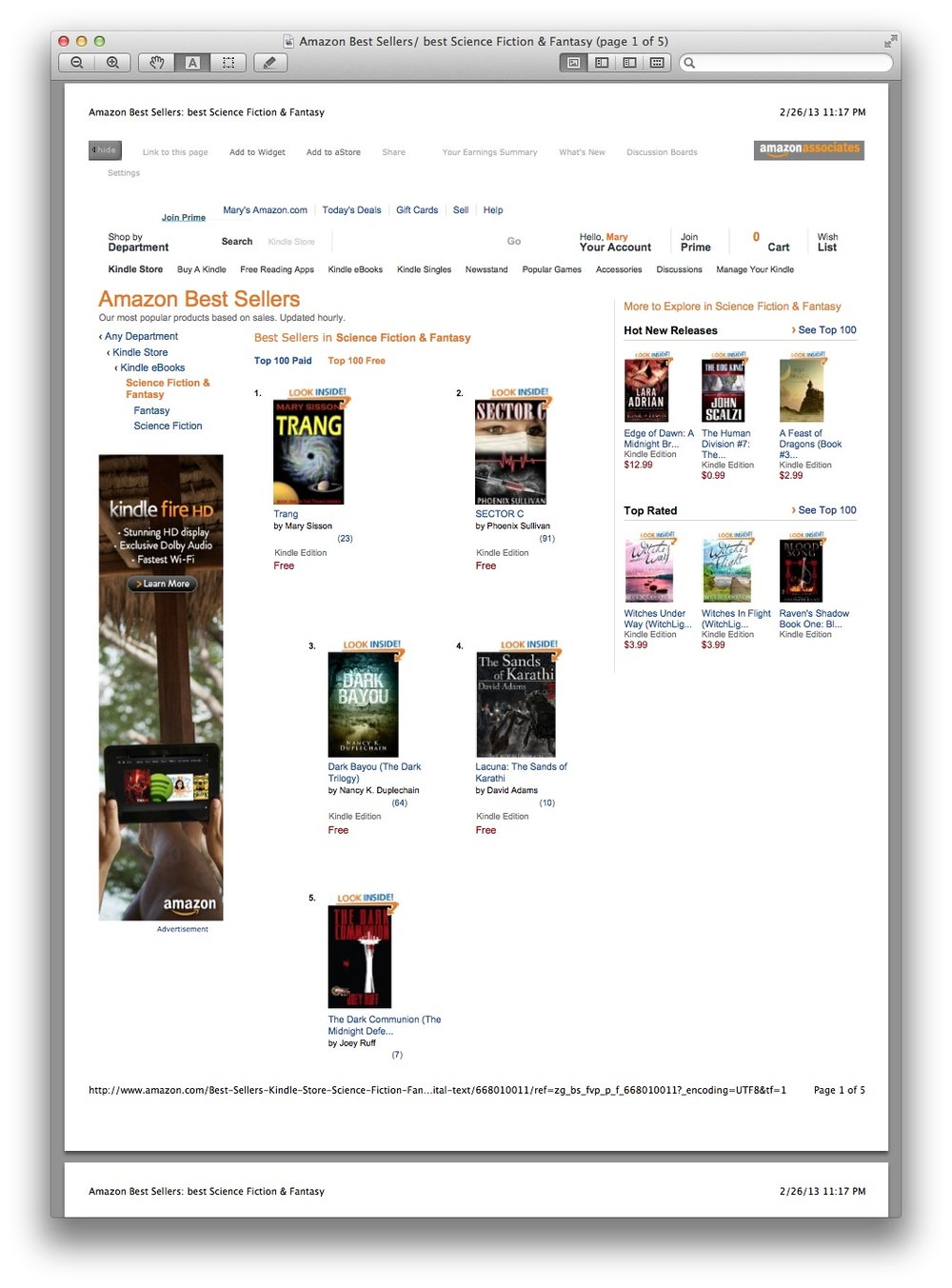As I mentioned, the latest Facebook ad campaign was less efficient than the one before--I had a lot of people clicking who didn't download the book, unlike the last time.
So, how did I target differently? And why do I think it was so much less efficient?
The last time, I targeted two groups: Science-fiction fans who liked stuff I thought was similar to mine, and Kindle owners. It will tell you how naturally adept I am at this that the group that I didn't think to target until the last minute and that I basically targeted by accident, the Kindle owners, responded the most to the ad.
This time around I targeted Kindle owners and many more science-fiction fans. I got many more responses from the sci-fi crowd. Unfortunately, as I've noted, overall that response was more clicks than downloads.
I can't determine which group responded which way, but I'm going to guess that the Kindle people did more of the downloading, and the sci-fi people did more of the looky-looing.
Why? Well, to my way of thinking, the average sci-fi fan is, you know, interested in science fiction. So when they hear of a new book, they go check it out.
How do they check it out? They click (and I pay).
Then once they get to the Amazon page, they see that, yeah, if you've got a Kindle, that book's free. But does Joe Sci-Fi Fan on Facebook actually own a Kindle? Maybe, but maybe not--he'd click anyway, because he's interested in sci-fi.
If Joe doesn't have a Kindle, well, then Trang is $13.99! Oy! That's a pretty penny for a book you've never heard of by an author you don't know! Maybe Joe should get a Kindle. Maybe not. Maybe next Christmas? He'll think it over. In the meantime, he's on to other things.
In contrast, Bobby the Kindle User on Facebooks (they are distant cousins, both members of the storied o'Facebook clan) definitely has a Kindle and is able to pick up that book.
What he's not going to do if he's not interested in that kind of book is click on the link. Period. There are a lot of free books on Amazon, and after an initial phase of gobbling up tons of free books, most Kindle users get way more selective--they realize that getting a bunch of free crap still leaves you with a bunch of crap.
In fact, that greater selectivity probably contributes to looky-looing from the Kindle users as well--Bobby likes sci-fi, decides to check the book out, and then looks at the EIGHTY BILLION unread sci-fi novels on his Kindle and says, Never mind.
But I do think that it's likely that most of the looky-loos came from the sci-fi side. I think the difference between the two campaigns supports that hypothesis, and logically it seems to make sense.
Looking ahead to when I make Trang free everywhere, the nice thing is that you can target different retail populations on Facebooks. I don't know how this works for other online advertising platforms, like Project Wonderful or Google AdWords, but Facebook's targeting is extremely precise. You name the group--Nook users, Smashwords fans, even Sony Reader users (both of them!)--and you can pick it out and market just to it.

